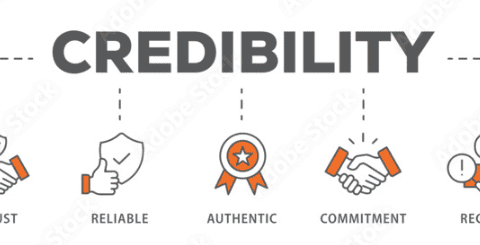Having an attitude of integrity is crucial in business, and this importance is now further underlined by the growing popularity of artificial intelligence (AI). While AI offers efficient and effective operations to companies, this development also brings ethical issues to the fore. Companies recognise that integrity is important for a company's long-term success and reputation. Why is this the case?
What does integrity mean?
Integrity is the quality characteristic of an individual to act honestly, reliably and ethically right, even when no one is watching. This value involves adhering to moral and ethical principles and being consistent in their words and actions.

The new emphasis on integrity
Several corporate scandals have made headlines in recent years. As a result, public confidence in large companies has fallen. These events have led to a renewed focus on business ethics. Stakeholders, from customers to investors, now demand more transparency and accountability from organisations than before these scandals took place.
Companies that value integrity often enjoy several benefits:
- Strengthened customer loyalty: Customers consciously choose brands that act ethically and also continue to purchase from these companies.
- Higher employee satisfaction: Employees are proud to work for ethical organisations and they feel engaged. As a result, employees will also stay with these organisations longer than if this is not the case.
- Sustainable business success: By focusing on long-term values rather than short-term profits, companies promote healthier growth and stability, making them last longer.
The role of employee surveys
Now that we understand why integrity is so crucial in the business world, the next question arises: how can companies internalise this value?
Playing here employee surveys a crucial role. Actively including integrity-related questions in these surveys offers several advantages:
- Feedback from the frontline: Employees are often the first to notice unfair or unethical practices. By surveying them, business leaders get a real-time picture of the ethical health of their organisation.
- Risk prevention: Larger scandals in the future can be prevented by detecting integrity problems. By actively asking employees about their experiences and observations, companies can see what risks are involved and thus mitigate or even avoid them.
- Encouraging engagement: Employee engagement and satisfaction increases when employees are asked for their opinion and see that integrity is an important value for management. When management exudes integrity, employees are more likely to adopt it than when this is not the case.
Moreover, including such questions in employee surveys to staff that management takes the value of integrity seriously. If management exudes integrity, it will also positively influence the integrity of staff.
Conclusion
Having an attitude of integrity is not just a matter of "doing the right thing", but also a strategic move for sustainable business success. By putting integrity at the heart of employee surveys, companies can firmly embed this core value in their organisational culture, both internally and externally. This makes integrity, all in all, a core factor of a successful business.
